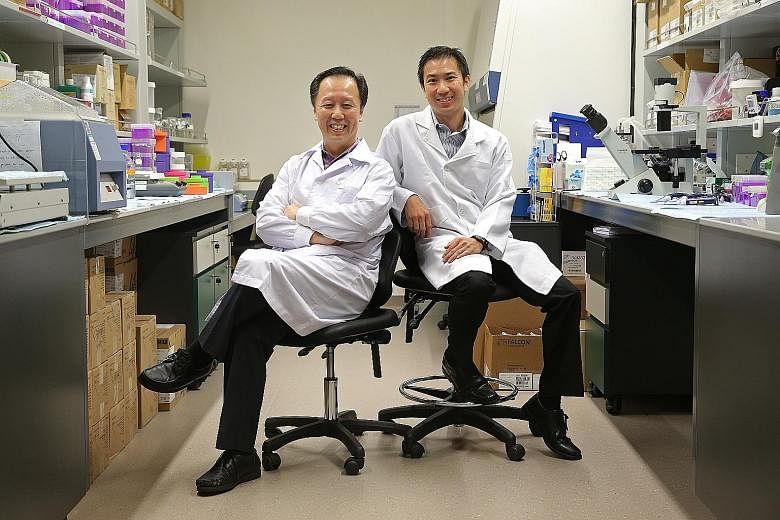Patients with chronic illnesses like Parkinson's disease may soon have to pop only a single pill a day, instead of having to take multiple doses.
A memorandum of understanding signed on Thursday between healthcare group SingHealth and Nanyang Technological University (NTU) will support cross-disciplinary research projects in locally relevant disease areas that will go towards making such revolutionary healthcare solutions a reality.
Through this partnership, which will last for at least five years, researchers from the two organisations will be eligible for grants of up to $300,000 per project, out of a total of $2 million jointly contributed by the two institutions.
"It's a historic day, when dreams come true. We've talked about this for a long time," said NTU's president, Professor Bertil Andersson.
Professor Ivy Ng, group chief executive of SingHealth, said that synergies between the two institutions had been brewing for some time and this partnership will "accelerate the number of collaborations and the amount of work that is being done".
Examples of NTU-SingHealth projects already under way include a new vibrating surgical blade that makes cornea transplants safer and easier, and a 3D computer model of the heart to help plan cardiac surgery and train doctors.
Also in the works is the ongoing development of that one-a-day magic pill for Parkinson's diseaseundertaken by NTU materials scientist Joachim Loo and SingHealth biomedical scientist Lim Kah Leong.
The two associate professors are looking at catalysing the genesis of the nano-capsules capable of releasing multiple drugs at a controlled rate, thereby allowing a single pill containing those nano-capsules to do the work of nine conventional pills in relieving the debilitating effects of Parkinson's.
Prof Ng said the partnership will act as a springboard to even larger- scale projects funded by bigger grants such as those from the Research, Innovation and Enterprise 2020 funds administered by the National Research Foundation.
"The seed might become a plant, the plant become a tree," said NTU provost Freddy Boey.
"If you're very sharp and focused in your approach as we're going to do during this collaboration, a small amount of money can lead to incredible results," added Prof Boey.


